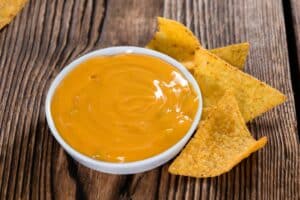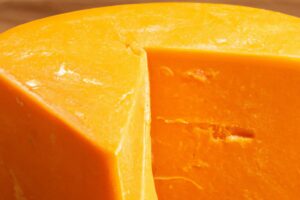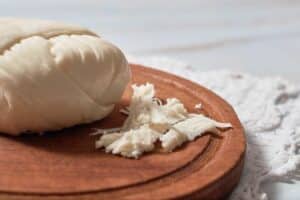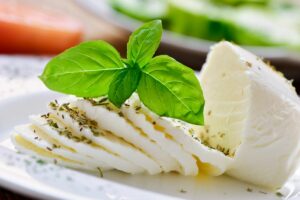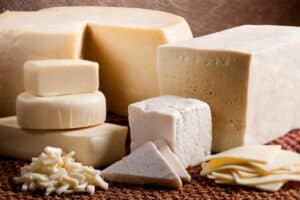Several possible cheese selections make a great halloumi cheese substitute. The popular options include kefalotyri, tofu, mozzarella, manouri, and queso para freir.
These aren’t the only options, however. Additional options include feta, queso panela, kasseri, and paneer. While there are many options, the choice shouldn’t be overwhelming.
Flavor and use are the most important factors to consider when searching for Halloumi cheese alternatives. Some cheeses are better used for cooking, while others are better raw. How much saltiness one likes is another deciding factor.
We took all of this into account when making our top 5 choices for halloumi cheese alternatives.
What is Halloumi Cheese?
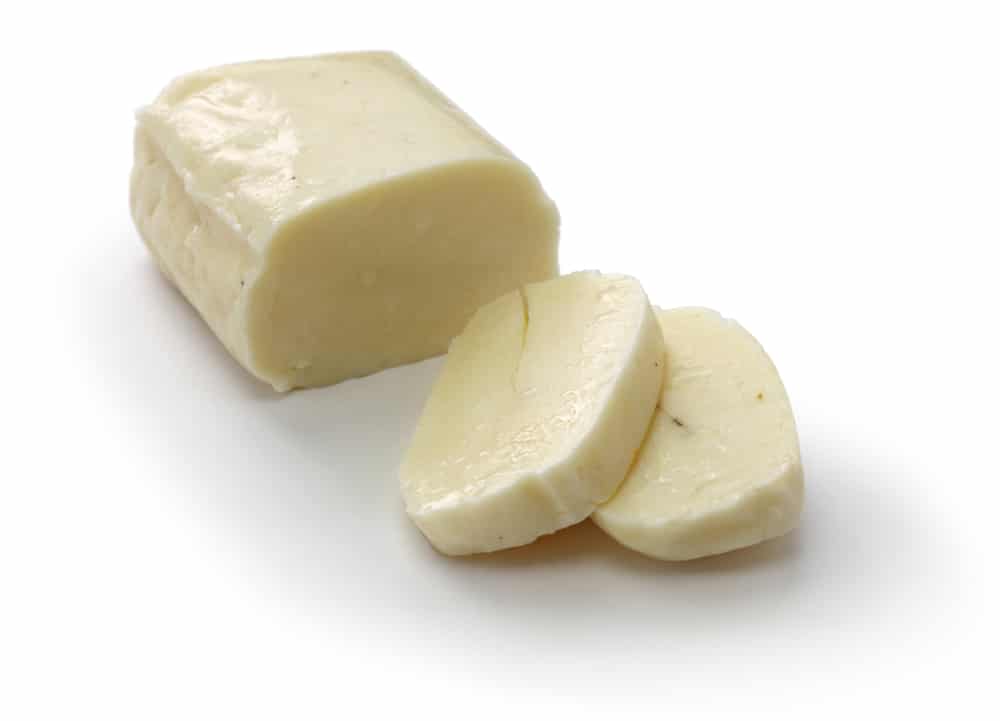
Halloumi cheese is a Mediterranean cheese hailing from Cyprus. It is made from either goat or sheep milk, though it is not uncommon for it to come from a combination of the two. The milk used can be either pasteurized or unpasteurized. Sometimes, cheesemakers use cow’s milk instead of sheep or goat.
It is a white artisan cheese that is semi-soft in consistency and is brined, giving it its salty flavor. We describe the texture as firm, springy, chewy, and creamy. It is a very aromatic cheese with no rind. It falls in the pasta filata family of cheeses. The texture is much like mozzarella.
As with any other variety of cheese, halloumi offers a great source of calcium and protein. An 80-gram serving provides 250 calories, 19.1 grams of protein, and 18.8 grams of fat. There are also 2.4 grams of salt.
It is revered for its salty flavor and is excellent for grilling or frying due to its high melting point. Due to the firm outside texture, it will achieve excellent grill marks while the center remains soft and springy. When fried, the inside of the cheese will remain melty while the outside will develop some crunch (kind of like a roasted marshmallow).
The salt is the reason this cheese grills so well. The brining of the cheese creates the perfect grill marks on the outside of the cheese. However, the salt content in Halloumi cheese is high, and this can be a problem for many who require a low-salt diet.
It is possible to reduce the salt content in halloumi if this is an issue. According to Fine Cooking, it is recommended to simmer the cheese in water for about 5 minutes before consuming, which will leech a portion of the salt out of the cheese, reducing the salt content.
If you intend to cook the cheese after (whether grilling or frying), chill it until it becomes firm once again before cooking.
5 Recommended Halloumi Cheese Substitutes
Kefalotyri
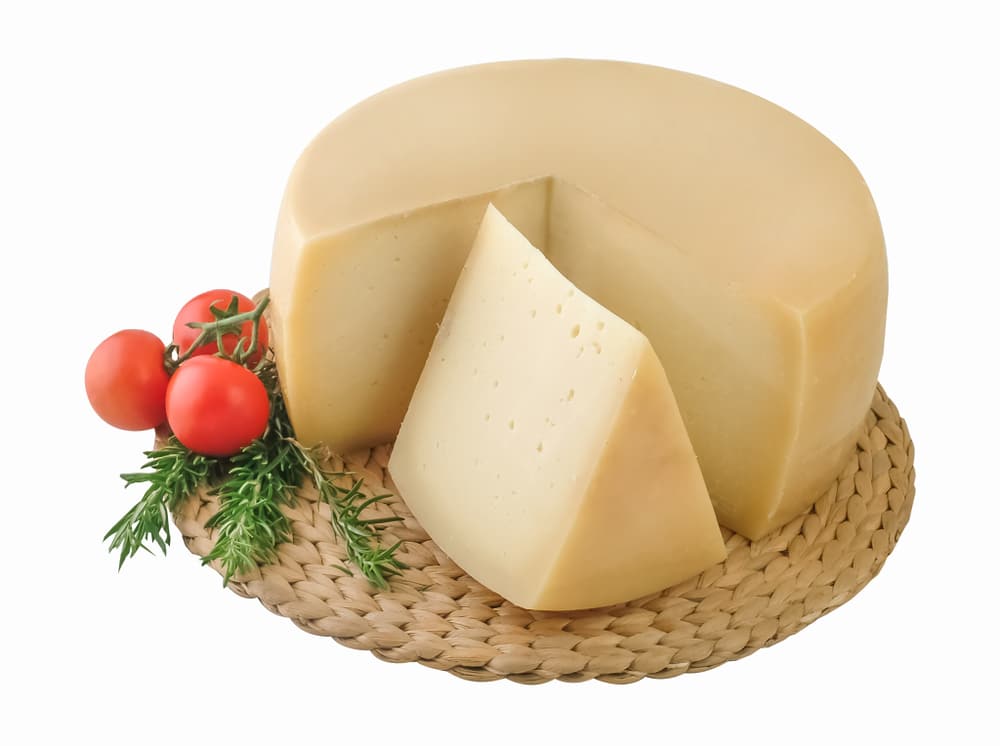
Like halloumi, kefalotyri has a salty flavor and is made from sheep or goat’s milk or a combination of the two. Depending upon the mixture of milk used, this cheese may be yellow or white.
Unlike halloumi, kefalotyri is a hard cheese with a sharp flavor and a dry texture. The strong flavor comes from the one-year aging process before it is ready to eat. It is a popular cheese used for saganaki.
As with halloumi, kefalotyri grills well. Kefalotyri is saltier than halloumi. As a result, it is recommended to use kefalotyri in smaller quantities or add a small amount of lemon juice to reduce the salty flavor.
Mozzarella
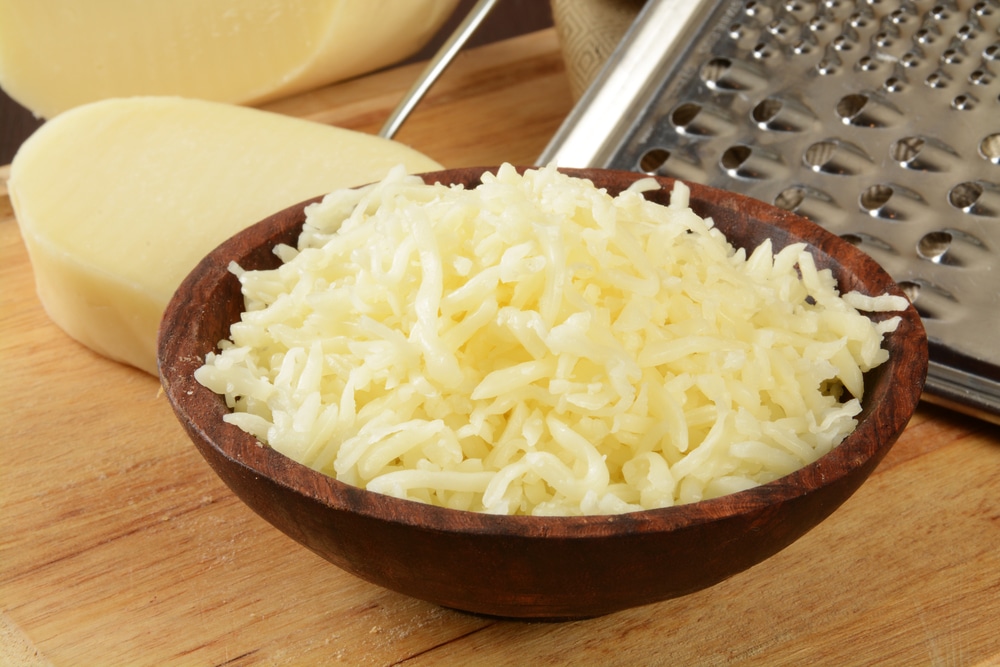
Are you looking for a slightly less salty alternative to halloumi? Mozzarella may be just what you’re looking for. This cheese offers a similar flavor and texture to halloumi. It is also in the pasta filata family of cheese.
Mozzarella offers fewer calories, carbs, and less fat than halloumi. It also provides 28% more protein. It’s a win-win halloumi cheese substitute when considering nutrition. To reduce the salt even further, try unsalted mozzarella.
Another way this cheese offers an advantage over halloumi is that it makes a much better pizza covering. It melts when heated and does not retain a solid form with a melty inside like halloumi.
Tofu

While tofu isn’t a type of cheese, it does have a similar consistency to halloumi. When fried, it offers a crunchy outside with a creamy center. Tofu, derived from mushrooms, is a protein that is perfect for pan-frying.
Tofu offers a low-fat, low-calorie, low-carb, high protein alternative to halloumi. Halloumi offers 322% more calories than tofu and 498% more fat. Great for a healthy lifestyle!
Manouri
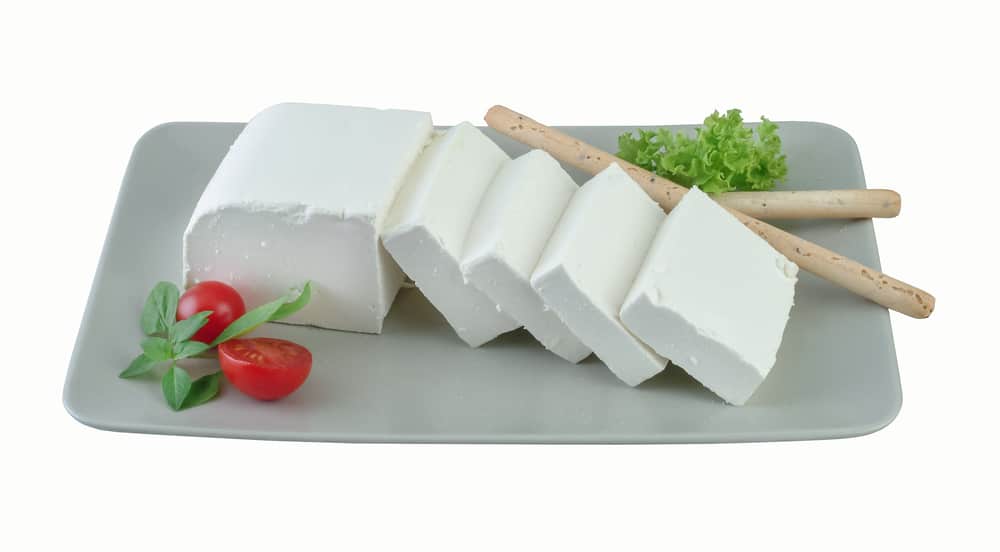
Another cheese that cooks well is manouri. Coming from the same region as halloumi, manouri offers a great halloumi alternative. Unlike halloumi, which can get rubbery as it cools down from cooking, manouri is crumbly, making it great to serve at room temperature after cooking.
Unlike halloumi, which is derived directly from milk, manouri gets produced from the leftover whey created when making feta cheese. We get Manouri cheese by using the whey and adding pasteurized sheep’s milk.
Manouri cheese offers a different texture than halloumi. It is a softer, milkier cheese than halloumi and is similar in texture to ricotta.
Queso Para Freir
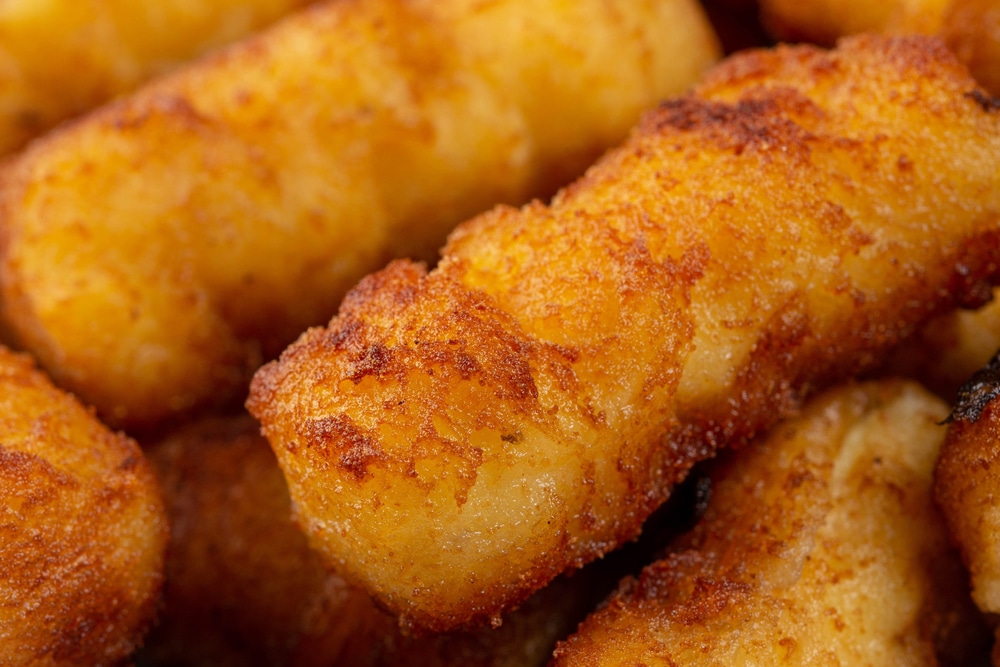
Unlike many other kinds of cheese on our list, queso para freir does not come from the regions of Cyprus or Greece. Queso para frier originates from Mexico and the Caribbean.
As with halloumi, queso para freir is a creamy white cheese that offers a mildly salty flavor. Like queso blanco, queso para freir is a soft cheese in the cottage cheese family. It is a great cheese to use when raw, crumbled over a salad like feta. It is similar to halloumi in that it is also a great cheese to use for frying as it has a high melting point and provides a golden-brown crust with a creamy inside that is unmelted.
Related Questions
Is feta cheese similar to halloumi?
Feta comes from the same overall region as halloumi. Feta has a much stronger flavor and is a saltier cheese, so one would not use it in the same ratio as halloumi. Feta is excellent for salads and when a crumbly white cheese is needed to complement a plate.
Feta cheese is similar to halloumi in its creation. Traditionally feta is made from sheep’s milk, though it can also be made using goat or cow’s milk. Any combination of the three can also produce this cheese.
Feta won’t hold up to the heat of cooking the way halloumi will. Therefore it is not recommended for fried cheese.
What Mexican cheese is like halloumi?
Queso panela is an excellent Mexican cheese to use for a Halloumi substitute. Like halloumi, queso panela holds up to the heat of the pan or grill. While it is a cheese one can cook with due to its higher moisture content, it does not brown as well as halloumi does.
Unlike the traditional sheep or goat milk that makes halloumi, queso panela is made with pasteurized skim milk from cows. It is a semi-soft cheese that, like halloumi, has a salty flavor. Queso panela is a common cheese used in quesadillas.
Is kasseri cheese like halloumi?
Kasseri cheese is similar to halloumi in that both use sheep’s milk. While one makes halloumi from either sheep or goat milk or a combination of the 2, kasseri uses about 20% goat’s milk and 80% sheep’s milk.
Kasseri also has a high melting point, which is excellent for the grill. It is a popular cheese used in saganaki. Kasseri comes from the same region as halloumi. Whereas halloumi is a semi-soft cheese, kasseri is semi-hard and offers a chewy texture.
Can paneer be substituted for halloumi?
Paneer cheese makes a great halloumi cheese substitute. Originating from India and known as Indian cottage cheese, paneer is similar in texture and quality to halloumi. While halloumi is semi-soft, paneer is a hard cheese.
It is made by slowly mixing the milk from either a cow or a water buffalo and lemon juice until it separates into curds. The flavor is mild, and, like halloumi, it has a high melting point and is excellent to cook with.

